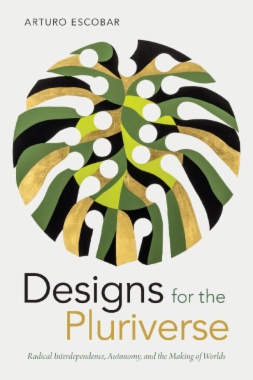In Designs for the Pluriverse Arturo Escobar presents a new vision of design theory and practice aimed at channeling design's world-making capacity toward ways of being and doing that are deeply attuned to justice and the Earth. Noting that most design—from consumer goods and digital technologies to built environments—currently serves capitalist ends, Escobar argues for the development of an “autonomous design” that eschews commercial and modernizing aims in favor of more collaborative and placed-based approaches. Such design attends to questions of environment, experience, and politics while focusing on the production of human experience based on the radical interdependence of all beings. Mapping autonomous design’s principles to the history of decolonial efforts of indigenous and Afro-descended people in Latin America, Escobar shows how refiguring current design practices could lead to the creation of more just and sustainable social orders.
- Cover
- Contents
- Preface and Acknowledgments
- Introduction
- I: Design for the Real World: But Which “World”? What “Design”? What “Real”?
- 1. Out of the Studio and into the Flow of Socionatural Life
- 2. Elements for a Cultural Studies of Design
- II: The Ontological Reorientation of Design
- 3. In the Background of Our Culture: Rationalism, Ontological Dualism, and Relationality
- 4. An Outline of Ontological Design
- III: Designs for the Pluriverse
- 5. Design for Transitions
- 6. Autonomous Design and the Politics of Relationality and the Communal
- Conclusion
- Notes
- References
- Index
- A
- B
- C
- D
- E
- F
- G
- H
- I
- J
- K
- L
- M
- N
- O
- P
- R
- S
- T
- U
- V
- W
- Y
- Z

